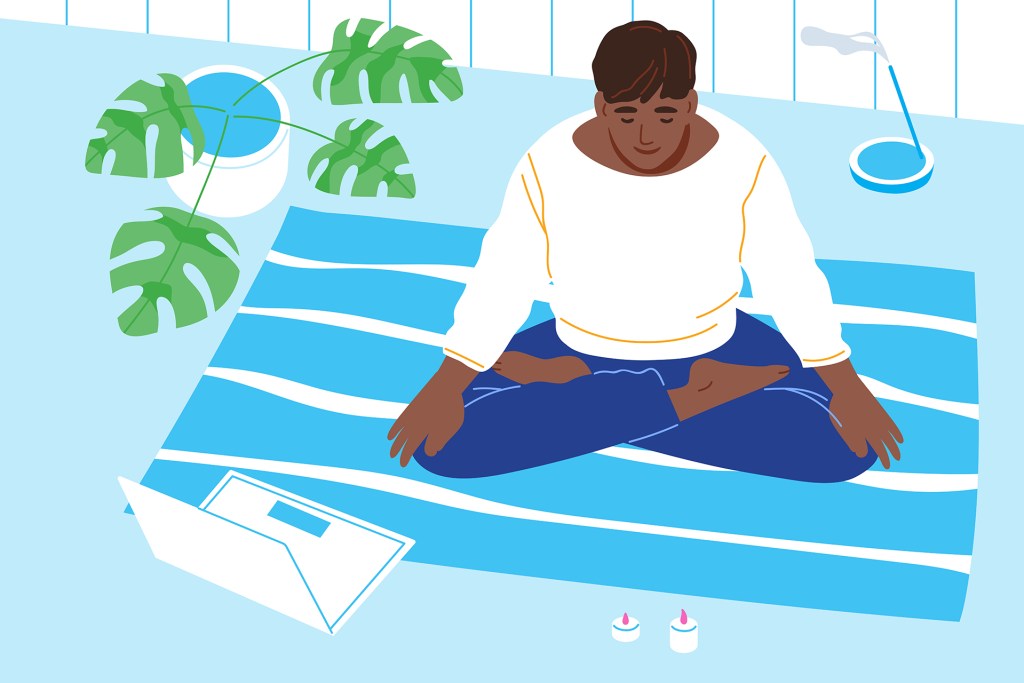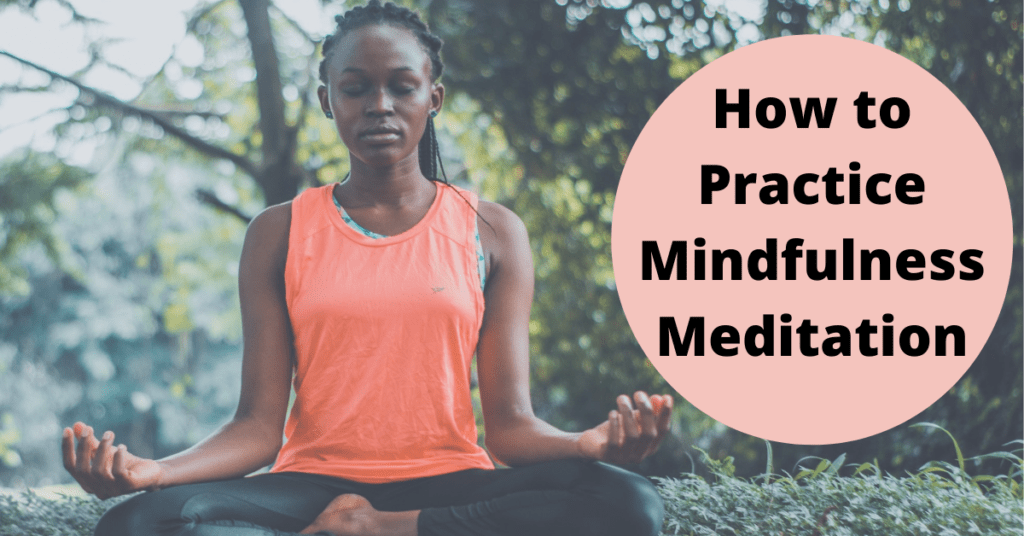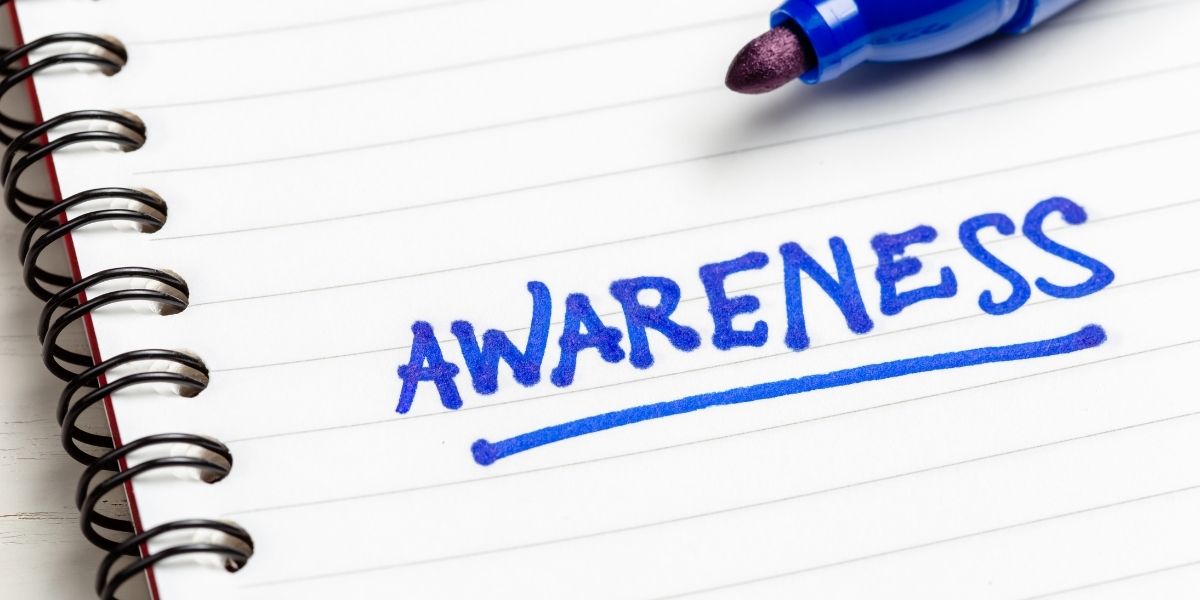Do you suffer from anxiety? Do you think meditation could help? If so, it’s worth giving meditation a shot. Meditation is an ancient practice that has been around since the Buddha first introduced it centuries ago. It was originally used for spiritual enlightenment, but new studies show meditation can also be beneficial to those with anxiety and depression. This article will teach you how meditation can benefit your mental health and give you some tips on how to get started.
Contents
Meditation For Anxiety

Practicing mindfulness meditation is good for feeling less stressed, anxious, and even less panicked. It helps you to slow down thoughts. This can help your mind and body feel better too. Mindfulness can be very beneficial. Researchers have found that mindfulness practice is helpful across age groups, genders, and geographic regions. For example, a 2015 study revealed that nursing students who practiced mindfulness meditation techniques had reduced anxiety and stress levels.
In a study of teenagers in the United States who were diagnosed with anxiety, similar results emerged. The recurring theme across these and other studies is the way mindfulness meditation helps people—particularly those suffering from anxiety who frequently focus on the past or future—focus on the present moment.
How to Practice Mindfulness Meditation?

When you’re first getting with meditation, it may be difficult to sit in silence. Believe it or not, one component of mindfulness is becoming aware of how sitting still might accelerate your thoughts. The key is not to judge our thoughts but simply observe them. You can do sessions of only a few minutes. When you are more used to it, you can increase how long the sessions last.
Meditating is important. You should do it in a place where you won’t be distracted by anything. Remove your shoes and any heavy jewelry or clothes that are restricting you. The goal is to meditate in a space that is as peaceful and comfortable as possible. Establish a time and place where you can do this. Then, follow these four steps to build the foundation for your meditation exercise.
Find a Comfortable Position
 People can sit in many ways. You may like to sit on the floor with your legs crossed or you might want to be sitting upright in a chair. Some people like to lie on their back when they are doing yoga. Find a posture that is enough so you won’t be at ease that you’ll fall asleep. Recognize that you may shift positions at any time if you become uncomfortable or suffer from muscular cramps.
People can sit in many ways. You may like to sit on the floor with your legs crossed or you might want to be sitting upright in a chair. Some people like to lie on their back when they are doing yoga. Find a posture that is enough so you won’t be at ease that you’ll fall asleep. Recognize that you may shift positions at any time if you become uncomfortable or suffer from muscular cramps.
Bring Your Awareness To Present
 Once you’ve found a quiet space, begin focusing your attention on yourself. Close your eyes and concentrate on breathing for a start. Simply notice how you breathe. You do not need to change it. This makes you think about the present moment. When your mind wanders, bring attention back to your breathing. After you have had some practice with this, allow the breathing to become deeper and slower to relax more.
Once you’ve found a quiet space, begin focusing your attention on yourself. Close your eyes and concentrate on breathing for a start. Simply notice how you breathe. You do not need to change it. This makes you think about the present moment. When your mind wanders, bring attention back to your breathing. After you have had some practice with this, allow the breathing to become deeper and slower to relax more.
Acknowledge Your Thoughts
At first, meditation can make you feel more anxious or self-judged. Am I doing this right? What should I be doing? Instead of trying to hide these feelings, notice them and wait until they go away. This will help you learn how to sit with uncomfortable thoughts. It can be hard, but over time you may feel less anxious and experience more inner peace.
Finish Your Meditation
 When you’re meditating or when your goal time has passed, open your eyes. With some mild stretches, come out of your meditation gradually. Take some time to reflect on your efforts.
When you’re meditating or when your goal time has passed, open your eyes. With some mild stretches, come out of your meditation gradually. Take some time to reflect on your efforts.
It’s difficult to keep track of time while meditating. If you’re concerned about going over your due date, consider using an alarm or timer with a low sound. This will divert your attention away from the clock and back to your meditation.
Benefits of Meditation

Once you have built a foundation, you may notice previous signs of anxiety-like ruminating on past events or insomnia—greatly reduced. But like any new modality, it may take some practice. Experiment with your practice to find what works best for you.
Mindfulness meditation can be done at any time of day. You may find that meditating before you go to bed helps you reduce anxiety at night. Perhaps you discover that practicing evening meditation helps you sleep better. Experiment with various times of day to see what works best for you. These are some benefits of meditation:
Helps To Preserve Aging Brain
 People who meditated for a long time had better-preserved brains than people who did not. Older meditators had greater grey matter volume in the brain than non-meditators, according to a study published this month. Participants who’d been practicing for an average of 20 years had more grey matter volume throughout the brain, however, meditation did not have a noticeable effect on people who had less than ten years of experience.
People who meditated for a long time had better-preserved brains than people who did not. Older meditators had greater grey matter volume in the brain than non-meditators, according to a study published this month. Participants who’d been practicing for an average of 20 years had more grey matter volume throughout the brain, however, meditation did not have a noticeable effect on people who had less than ten years of experience.
Reduces Activity In Brain’s “Me Center”
 One of the most interesting studies in the last few years found that mindfulness meditation decreases activity in the default mode network (DMN), which is a part of your brain. It makes you stop thinking about yourself and keeps you from getting distracted. The DMN is on when we’re not thinking about anything in particular. Our minds are then just wandering from thought to thought. Because of that, the DMN is usually being less happy and worrying a lot about the past and future. For many people, it’s important to try to dial down the DMN because of these negative effects.
One of the most interesting studies in the last few years found that mindfulness meditation decreases activity in the default mode network (DMN), which is a part of your brain. It makes you stop thinking about yourself and keeps you from getting distracted. The DMN is on when we’re not thinking about anything in particular. Our minds are then just wandering from thought to thought. Because of that, the DMN is usually being less happy and worrying a lot about the past and future. For many people, it’s important to try to dial down the DMN because of these negative effects.
A lot of people say that meditation helps them to calm down. This is because it makes new connections in the brain. Even if you start thinking about other things, you will be able to come back to meditation more quickly because of these new connections.
Leads to Volume Changes in Key Areas of Brain
Mindfulness meditation can change the brain. It can make people smarter and make them better at doing their work. It is good to spend your time doing mindfulness meditation if you want to be a better person or if you are having problems with your memory. There were also decreases in brain cell volume in the amygdala, which is responsible for fear, anxiety, and stress. These changes matched the participants’ self-reports of their stress levels. This means that meditation not only changed the shape of their brains but also changed how they feel. A study found that after people do meditation training, their mood and arousal change. This also changed how they felt about themselves. For anyone who claims that activated blobs in the brain don’t imply anything, our subjective experience – improved mood and well-being – does seem to indicate that meditation has an impact on how we feel.
Improves Concentration and Attention
 It’s not just kids who have problems concentrating. It can also happen to grown-ups. If you are diagnosed with ADD then meditation can help you concentrate better, but it will work for people without ADD too. One recent study found that meditation helped during the verbal reasoning section of the GRE test after only 2 weeks of training. Consider how your attention quality has altered over the years, and ask if it’s possible that meditation may be the reason. For example, between 2008 and 2010, folks who regularly meditated improved their attention by 32 percentile points on average. This is comparable to 16 percentile points in terms of improvement, which isn’t shabby. Because meditation focuses on one thing at a time, meditation can improve your attention.
It’s not just kids who have problems concentrating. It can also happen to grown-ups. If you are diagnosed with ADD then meditation can help you concentrate better, but it will work for people without ADD too. One recent study found that meditation helped during the verbal reasoning section of the GRE test after only 2 weeks of training. Consider how your attention quality has altered over the years, and ask if it’s possible that meditation may be the reason. For example, between 2008 and 2010, folks who regularly meditated improved their attention by 32 percentile points on average. This is comparable to 16 percentile points in terms of improvement, which isn’t shabby. Because meditation focuses on one thing at a time, meditation can improve your attention.
Reduces Anxiety — and Social Anxiety
 Many people start meditating because they want to reduce stress. Lots of people say that meditation has helped them a lot. There is a new kind of meditation called MBSR. If you are stressed, this can help. Mindfulness meditation helps people with anxiety. This is because mindfulness meditation effortlessly reduces anxiety. People with mindfulness meditation have less of these “self-centered” thoughts that lead to stress. Mindfulness meditation can also help people with social anxiety. Scientists looked at changes in the brain and found that they helped people to pay attention better. It also made their symptoms go away.
Many people start meditating because they want to reduce stress. Lots of people say that meditation has helped them a lot. There is a new kind of meditation called MBSR. If you are stressed, this can help. Mindfulness meditation helps people with anxiety. This is because mindfulness meditation effortlessly reduces anxiety. People with mindfulness meditation have less of these “self-centered” thoughts that lead to stress. Mindfulness meditation can also help people with social anxiety. Scientists looked at changes in the brain and found that they helped people to pay attention better. It also made their symptoms go away.
Helps With Addiction
 There are a lot of studies that show meditation can help people with addiction. Meditation changes the brain and helps people recover from addiction. A study said that people who learned mindfulness were many times more likely to have quit smoking by the end of the study than people in regular treatment. And at 17 weeks, they were still smoking less than before. This may be because when people meditate, they can not do other things. They don’t need to smoke or drink alcohol. When they feel like smoking or drinking alcohol, they just ride out the “wave” until it passes. Other people have found that mindfulness training, mindfulness-based cognitive therapy (MBCT), and mindfulness-based relapse prevention (MBRP) can help with problems like addiction.
There are a lot of studies that show meditation can help people with addiction. Meditation changes the brain and helps people recover from addiction. A study said that people who learned mindfulness were many times more likely to have quit smoking by the end of the study than people in regular treatment. And at 17 weeks, they were still smoking less than before. This may be because when people meditate, they can not do other things. They don’t need to smoke or drink alcohol. When they feel like smoking or drinking alcohol, they just ride out the “wave” until it passes. Other people have found that mindfulness training, mindfulness-based cognitive therapy (MBCT), and mindfulness-based relapse prevention (MBRP) can help with problems like addiction.
Conclusion
If you are reading this blog, you must be interested in meditation. . Give it a try! Meditation is an ancient practice that has been around since the Buddha first introduced it centuries ago. It was originally used for spiritual enlightenment, but new studies show meditation can also be beneficial to those with anxiety and depression. This article will teach you how meditation can benefit your mental health. This article will also provide some tips to start meditation. We have resources below if you want more information about getting started with mindfulness. You can join our online community of meditators. You can also feel free to reach out anytime if we can help.
If you are looking for affordable Online Counseling MantraCare can help: Book a trial therapy session


